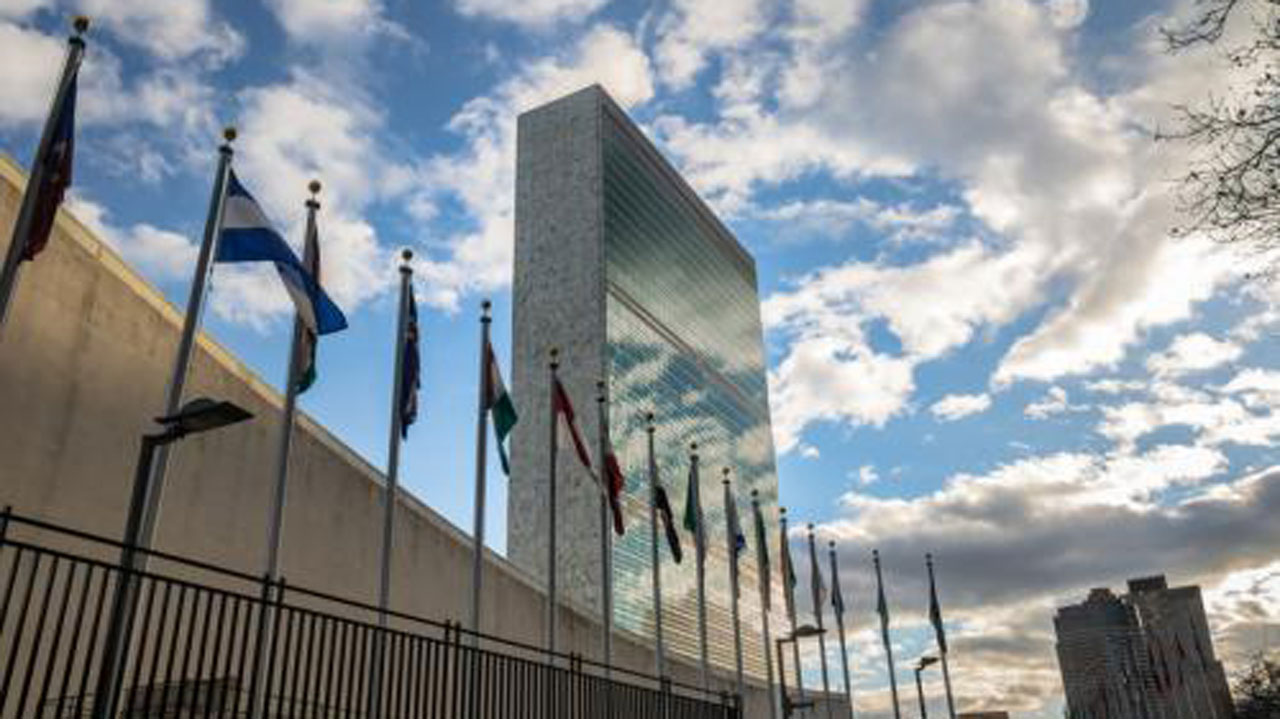
At the eighth edition of the United Nations World Tourism Organisation’s (UNWTO) World Forum on Gastronomy Tourism, co-organised with Basque Culinary Center (BCC), stakeholders chart a path forward to strengthen the links between product, gastronomy and tourism.
UNWTO and BCC hosted more than 300 online participants from 50 countries with focus on the promotion and preservation of local products, contribution of tourism to sustainable development, innovation and food waste.
Prior to the event, UNWTO appointed Chef Fatmata Binta and world-renowned Basque Chefs Martín Berasategi and Pedro Subijana as Ambassadors for Sustainable Tourism, in the framework of the 8th UNWTO World Forum in recognition of their work in gastronomy, the enhancement of local produce and community development.
With this nomination, the UNWTO underlines the importance of sustainable food systems, cultural preservation and capacity building as examples of the joint transformative potential of gastronomy and tourism for the development and prosperity of communities around the world.
The Forum put the spotlight on gastronomy tourism’s role in the preservation of local territories and the promotion of sustainable practices. A high-level panel of tourism ministers – Bulgaria, Puerto Rico and Zimbabwe focused on policies that strengthen agriculture, gastronomy and tourism. Expert-led discussions also focused on the protection of culinary traditions, the value of geographical indications, advancing the sustainability and resilience of rural areas, enabling producers to thrive in an increasingly interconnected and technology-driven world. The forum explored the sectors’ potentials as a source of inclusive growth across the globe.
Drawing from the recommendations in the Global Roadmap for Food Waste Reduction in Tourism, released by UNWTO in collaboration with UN Environment Programme, titled the “Circular Solutions for Reducing Food Waste”, session showcased diverse initiatives by hotels, restaurants and cruise lines. Solutions ranged from prevention measures, such as mindful procurement and menu design; redistribution of food surplus to vulnerable groups and biomaterial processing; to circular strategies like composting or energy recovery. The discussions also emphasised the significance of education, innovation, and supportive regulations and policies in accelerating change.
According to UNWTO Secretary-General Zurab Pololikashvili who highlighted the combined potential of gastronomy and tourism, “it is a privilege to have world-renowned chefs in the mission to advance the role of gastronomy and tourism for our planet and people, strengthening communities, fostering sustainable food systems and changing lives. Gastronomy Tourism can play a leading role in promoting responsible agricultural practices, protecting biodiversity and reducing the environmental footprint. It can also create new opportunities for communities to thrive and protect their heritage and traditions and become an engine of growth and diversification for destinations supporting our roadmap towards the Sustainable Development Goals.”
On his part, General Director of BCC, Joxe Mari Aizega, General Director of Basque Culinary Center said: “We are at a time to promote transformative dynamics and link gastronomy tourism with rural development. Territory, innovation and creativity are key to successfully moving towards a new scenario in which to promote a model of responsible gastronomy tourism focused on caring for people and the environment. It is essential to promote sustainable practices, harnessing the power of technology as an engine of growth and promoting the professional development of the sector, and to work to maintain the authenticity and diversity of the gastronomic offer.”
In a special address, the First Lady of Zimbabwe, Auxillia C. Mnangagwa, a committed promoter of African gastronomy highlighted that gastronomy tourism globally has become an effective tool of attracting tourists, particularly those who are cognisant of the natural and nutritional value embedded in traditional foods. “As nations we should be able to tap into our nutritional traditional cuisines to ensure a healthy living and socio-economic development of our nations. This is in line with our heritage-based philosophy for promoting tourism.”
On the occasion, UNWTO designated Chef Fatmata Binta as Ambassador for Responsible Tourism for her role in promoting African Gastronomy and community development. Chef Binta is a modern-day nomadic chef connected to the Fulani culture, customs, and cuisine of the biggest Nomadic group in West and Central Africa. In Donostia – San Sebastian, selected finalists from previous UNWTO Startup Competitions working on Gastronomy pitched their ideas. The solutions presented featured exceptional, personalised culinary experiences curated by renowned chefs (Searchef), streamlining waste management in hospitality (Eatinn), celebrating the flavours of Moroccan street food (Machi Mouchkil), establishing sustainability certifications and restaurant guidelines (Ecofoodies), and introducing a locally crafted, quality food delivery app (Oh les Chefs). Oh les Chefs emerged as the winner, primarily for its strong potential for international expansion. They will gain access to a dedicated workspace within the LABe- Digital Gastronomy Lab for six months. Additionally, the startup will actively engage in the Culinary Action!, gastronomy entrepreneurship programme by Basque Culinary Center and enjoy a six-month membership in the GOe Digital Community.
More than 700 startups from more than 100 countries have taken part in the competition. Applications are now open for the 4th Edition of the UNWTO Gastronomy Tourism Startup Competition in collaboration with the Basque Culinary Centre and powered by Alpitour World.






